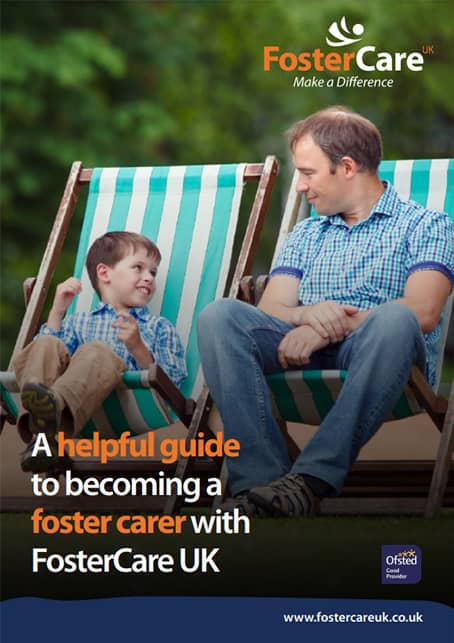


What happens when a child is taken into care?
Benefits of being a foster parent
What is a care leaver?
How to become a foster parent
How to foster a child
What are the foster care requirements
Can I choose who I foster?
Fostering with pets FAQ
How long does it take to become a foster parent?
What is the role of an independent fostering agency?
Fostering a disabled child
Tips for coping when foster placements end
Do foster carers pay tax?
What to expect in a fostering assessment
Common Fostering Challenges and Solutions
What disqualifies you from being a foster carer?
Muslim Fostering
Fostering as a single parent
Can you foster a child with a criminal record?
Can you work and foster?
Top 10 fostering myths
Can I foster if…?
Can I foster and rent?
LGBT Fostering: can I foster if I’m gay
Top transferable skills to become a foster carer
Can you foster with a mental health condition?
Christian Fostering
Sikh Fostering
Cultural Diversity in Foster Care
How to encourage foster children to read
Reasons for a child to be taken into care
Tips for coping with attachment disorders in Foster Children
Fostering vs Adoption
What happens when foster parents get divorced?
What is reunification in foster care?
How to deal with foster child bullying
A guide to the foster care handbook
Guide to fostering young children
Types of self-harm
A guide to fostering teenagers
What are the signs of depression in foster children?
If you’re interested in becoming a foster carer, it’s important to know that at FosterCare UK we actively promote the inclusion of LGBT foster parents into our community. If you can meet the eligibility requirements, have the right personal qualities, and provide a loving home – then gender and sexual orientation will not rule you out as a potential foster carer.
This guide tackles misconceptions surrounding LGBT fostering as well as providing clarity on the factors that do determine eligibility.
False – you can foster if you are gay or bisexual. Your sexual preferences will not affect your eligibility to foster in any way.
False – at FosterCare UK, we welcome and encourage same-sex foster couples.
False – your gender will not be a determining factor in your fostering application.
False – your sexual orientation will not affect your application at all and being recently single won’t necessarily affect your ability to take care of a child. However, during the application process, there will be a full account taken of your life. Divorce can affect your financial and emotional stability, and these factors are important to consider before you decide if fostering is right for you. Find out more about single parent fostering from our detailed guide.
All potential foster parents, irrelevant of sexual preferences, must meet these initial requirements for fostering to continue with their application.
Factors including having a spare bedroom, being in good health, being at least 21 years of age, having enough time to provide child support and care (usually on a full-time basis) and being a full-time resident in the UK (or have leave to remain), must all be met.
Other factors, such as financial security, experience with children, having a safe home environment, a steady support network of friends and family to rely on and any past convictions, will also be considered for eligibility.
If you are gay, lesbian, bisexual, transgender or living in a same sex couple, and have ever wondered “can I foster?”, the answer is 100% “Yes”.
You can learn more about fostering requirements in the UK in our detailed guide. For more information on gay fostering, or fostering as a member of the LGBT community, get in touch with our friendly team of experts here at FosterCare UK. We’re always on hand to provide information and guidance around any fostering query.
If you’ve got any questions or would like to find out more about fostering with Capstone, fill out the form below.
An experienced fostering advisor from your local area will then be in touch.

Start the conversation today. Our team of friendly advisors are on hand to answer any foster care questions you may have. We can offer you honest and practical advice that can help you decide if becoming a foster carer is the right path for you.


